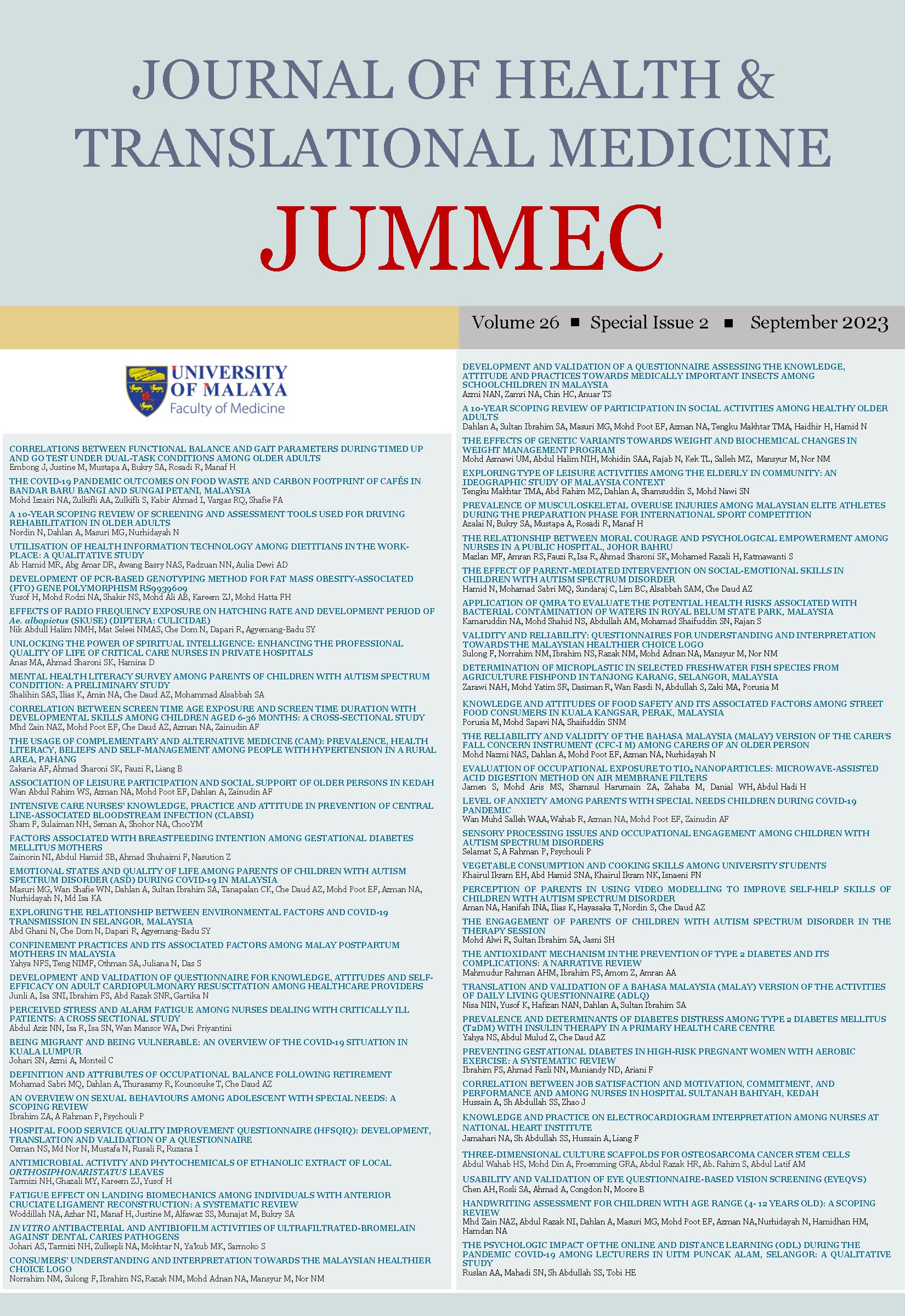THE ENGAGEMENT OF PARENTS OF CHILDREN WITH AUTISM SPECTRUM DISORDER IN THE THERAPY SESSION
Received 2023-07-09; Accepted 2023-09-21; Published 2023-09-21
DOI:
https://doi.org/10.22452/jummec.sp2023no2.44Abstract
Understanding engagement in therapy is crucial for all stakeholders seeking to enhance child abilities through parent participation. Collaboration among stakeholders, including parents, and service providers could significantly impact the development of best practices in paediatric rehabilitation. However, there is a lack of research on parent engagement among children with autism spectrum disorder (ASD), specifically in measuring how parents and children engage during therapy sessions. This study aimed to understand the engagement of parents of children with autism spectrum disorder in therapy sessions. The study used a survey questionnaire namely the Paediatric Rehabilitation Intervention Measure of Engagement-Parent Version (PRIME-P), to identify the level of engagement comprising of affective, cognitive, and behavioural aspects. The study also assessed the probable stress factors influencing parent engagement using the Parental Stress Scale (PSS). One hundred and two (102) parents participated in this study. The data was analyzed for descriptive statistics, a correlation between engagement and parental stress, and regression analysis to determine the best predictor of engagement. The results showed that the levels of affective, cognitive, and behavioural engagement were high and promising, corresponding with a low level of parental stress. The findings contribute to the understanding of parent engagement, highlighting the role of service providers such as occupational therapists (OTs) and special education (SPED) teachers reflecting the most effective intervention approaches for children with ASD.
Downloads
Downloads
Published
Issue
Section
License
All authors agree that the article, if editorially accepted for publication, shall be licensed under the Creative Commons Attribution License 4.0 to allow others to freely access, copy and use research provided the author is correctly attributed, unless otherwise stated. All articles are available online without charge or other barriers to access. However, anyone wishing to reproduce large quantities of an article (250+) should inform the publisher. Any opinion expressed in the articles are those of the authors and do not reflect that of the University of Malaya, 50603 Kuala Lumpur, Malaysia.


